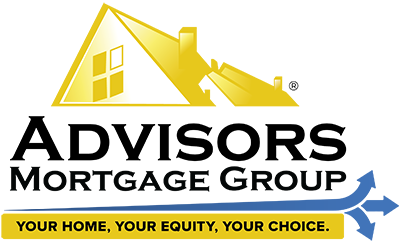A reverse mortgage is a powerful tool that can provide much needed relief from stressful financial burdens for our older homeowners.

A reverse mortgage is a powerful tool that can provide much needed relief from stressful financial burdens for our older homeowners.
Learn the truth about how a reverse mortgage can help ease your financial worries.

Reverse mortgages get a bad rap. Too many people don’t fully understand what a reverse mortgage is and how it works.
Some of the most common misconceptions about reverse mortgages include:
Weighing the positives and negatives of a reverse mortgage ultimately comes down to the priorities of the borrower and their family.
Reverse mortgages can completely pay off your mortgage or provide the funds needed for long-term health. When people are struggling to make ends meet, the elimination of mortgage payments can drastically transform their quality of life.
There are very important differences in the process of obtaining a reverse mortgage, as compared to other types of mortgages. The biggest changes are in the beginning and the end of the process.
A reverse mortgage is unique. The first step in a reverse mortgage is counseling with a HUD (Department of Housing and Urban Development) representative. The point of the session with HUD is to protect the applicant and make sure the applicant fully understands how a reverse mortgage works. The counselor will verify that the reverse mortgage is their decision and that no one is trying to take advantage of them.
In addition, they will evaluate the applicant’s financial situation and advise whether any public or private programs can offer assistance or alternatives to a reverse mortgage.
The reverse mortgage counselor will educate the applicant about the pros and cons of a reverse mortgage, including how they work, tax implications, and payment options. After completing the counseling session, the applicant will receive a certificate to provide to their lender.
Once the HUD certificate is in hand, the applicant should choose a lender and fill out the application. After the application has been submitted, the lender will order an appraisal, credit report, and assemble the other necessary documents. At this point, the loan application will proceed similar to other types of loan processes.
Once all of the paperwork has been completed and the loan has been approved, the loan can proceed to the closing stage. After the closing paperwork is signed, the borrower legally has 3 days to change their minds.
When the reverse mortgage has become official, the lender will be able to distribute the funds. If a mortgage still exists on the home, the funds must first be used to pay off the balance. Any additional funds will become available as a line of credit for the borrower to use.
Gain peace of mind. Find out if a reverse mortgage is the right solution for your situation.
The amount of money a borrower may withdraw from a reverse mortgage varies, depending upon the borrower’s age, the value of the home, how much equity the borrower holds, the current interest rates, and type of payment structure. Borrowers may opt for different payout structures, including lump sum, monthly payments or a line of credit. The maximum amount available will change based on how the money is distributed.
If the spouse is a co-borrower and is still alive, nothing happens until both individuals have passed. After both deaths, the reverse mortgage must be repaid. There are multiple options for repaying the loan. The heirs may sell the home, take out another mortgage, offer the deed of the home to the lender, or refinance to a forward mortgage.
There are multiple options available to borrowers to maintain their equity value in their homes, such as starting life insurance policies or continuing monthly payments. Advisors Mortgage Group takes pride in helping their customers make the right decisions for both themselves and their families.
Interest rates change regularly. Advisors Mortgage Group offers more competitive rates than other leaders in the industry. When you work with Advisors, you can rest assured that you or your loved one will receive the best possible rates and service.
Reverse mortgage fees will depend upon the individual loan. In addition to fees payable to the lender, the counselor also requires a separate fee.

Advisors is a multi-state mortgage banker that believes in delivering a seamless, stress-free mortgage experience to all of our customers.
Apply Now